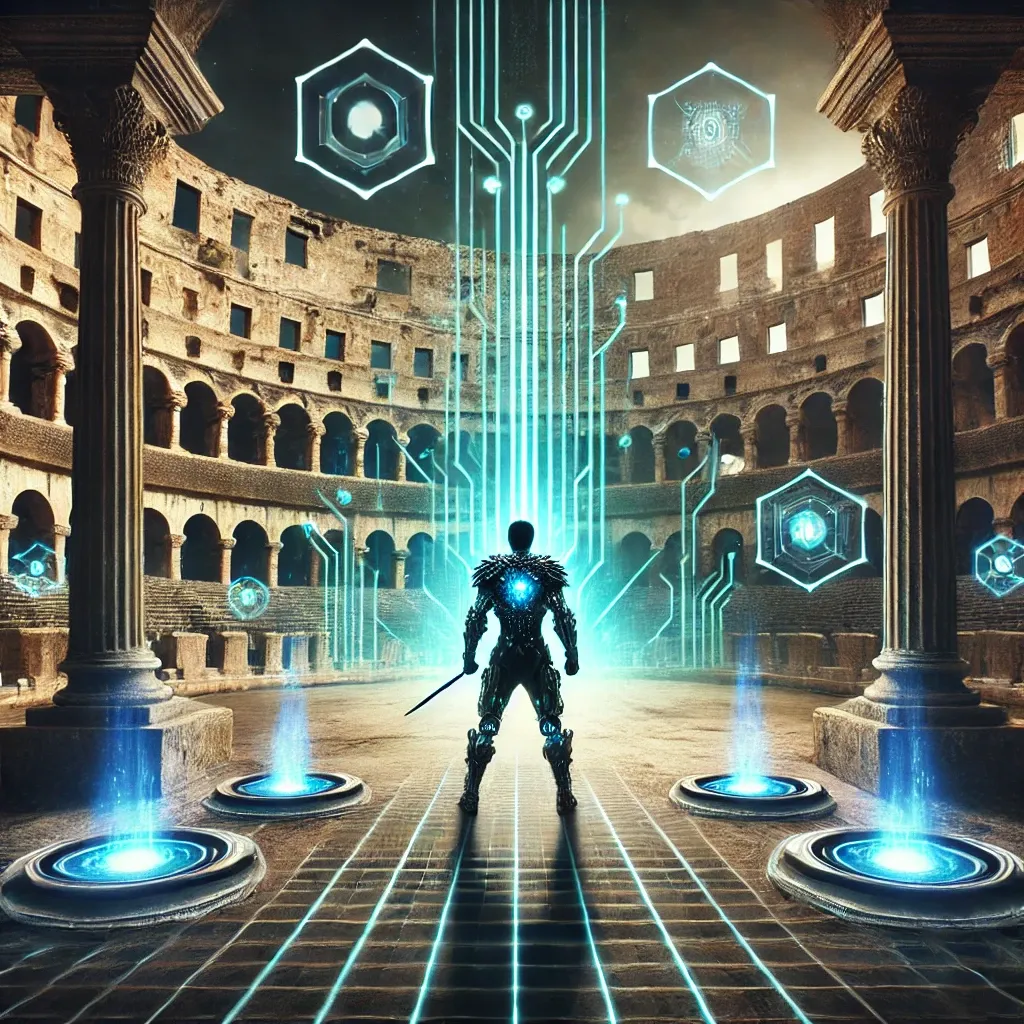In The AI-rena

AI is changing everything. Not just how we build software, but who is building it.
This moment feels like the biggest shift since the internet in the late 1990s—maybe even bigger. AI is making development 5-10x faster, breaking down traditional roles, and turning small, high-leverage teams into forces that can rival much larger companies.
The future of software won’t be built by massive orgs with endless headcount—it’ll be built by small, AI-augmented teams who can ship faster, iterate smarter, and operate at a scale that used to require entire departments.
To truly understand this shift—to know where AI is actually going—you can’t just watch from the sidelines. You have to be in it. I’ve spent my career building software from scratch, scaling teams, and leading product. Now, AI is amplifying what’s possible. With my technical background and product experience, I’m in a position to be 10x’ed—leveraging AI to build faster, smarter, and more efficiently than ever before.
The best way to understand the future is to experience it firsthand.
That’s why last year I started Second Coffee, an incubator that lives in this world, and uses AI to build and ship AI-based products.
My brother Justin and I are already proving what’s possible with Tell Mel, an AI biographer that captures family stories over the phone. It’s a glimpse into what AI-native products can do—unlocking value in ways that weren’t feasible before. Tell Mel is not only an amazing product, but made it pretty clear entire careers can already be replaced by AI - in this case real biographers.
Justin and I are also working on Max Help, an AI-powered tech support service for families, delivered over the phone. At Second Coffee, I have a few other AI-native products in the pipeline about to be released —each exploring how small, AI-first teams can reshape entire industries.
Last year I could have taken on a CEO or VP of Product role at an existing company. Instead, I realized what leaders will need to know even in the very near future is very different than the skills they know now. So I went back to building. To code. To explore what’s possible when AI acts as a true force multiplier.
AI isn’t just making existing processes more efficient—it’s rewriting the entire playbook. The way companies are built and run is going to look radically different in the near future. What works today won’t be what works tomorrow.
AI isn’t there yet. The code development is good but flawed. But the trajectory is undeniable. The way companies are built and run is going to look radically different in the near future. What works today won’t be what works tomorrow.I’m sure most of what I build won’t work but life in the AIrena is messy.
I’ll be sharing my experiences—what works, what doesn’t, and where AI can transform and won’t transform work. If you're thinking about what’s next, either join or follow along! It’s going to get interesting.